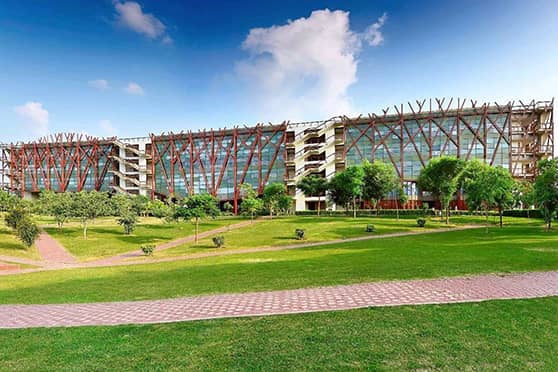Jindal Global Business School produces 162 SCOPUS-indexed publications, crosses most IIMs


The Jindal Global Business School (JGBS) of OP Jindal Global University (JGU) achieved a milestone by producing 162 SCOPUS-indexed research publications, joining the ranks of the top IIMs in business research.
Extensively used by ranking and accreditation institutions, SCOPUS is the largest database of peer-reviewed literature in the world, managed by the Elsevier Publishing House. In the rapidly evolving business landscape, this remarkable research output by JGBS continues to contribute to the cutting-edge management knowledge, as part of JGBS's vision of being a "globally acclaimed business school developing transformative ideas and people".
An analysis of the SCOPUS database reveals that for the year 2021, JGBS, with its 162 SCOPUS publications, surpassed all IIMs in India, except for IIM Ahmedabad (with 189 publications) and IIM Lucknow (with 178 publications). JGBS was ahead of IIM Bangalore (101 publications), IIM Calcutta (98 publications), Indian School of Business (ISB, 109 publications), Management Development Institute (148 publications) and XLRI (85 publications).
A three-fourths of JGBS’s publications are in journals that are indexed in the Australian Business Deans Council (ABDC) list, with around 40% of these papers in journals which are indexed in ABDC A-star and A level journals.
The research across these publications covered 14 of the 17 Sustainable Development Goals of the United Nations, exploring the direct positive social and environmental applications of novel and robust ideas. As a global business school, and driven by the values of diversity and inclusion, JGBS faculty members have collaborated with more than 100 scholars across four different continents in the world. Around 40% of the total publications had at least one foreign co-author.
C. Raj Kumar, founding vice-chancellor, OP Jindal Global University, stated, "Publishing 162 SCOPUS indexed papers, with around three-fourths indexed in the ABDC list, is an outstanding achievement for a young business school. I feel this is an important day in the Indian business education sector where the overall Indian management knowledge ecosystem stands to benefit greatly from this achievement. I have always believed that high quality has a direct correlation to teaching and this will immensely benefit the students of JGBS.”
To make this accomplishment possible, JGBS has strategically designed a supportive ecosystem that encourages and duly supports faculty members in conducting quality management research. JGBS also has a dedicated Office of Research (OFR), under the leadership of Anirban Ganguly (vice-dean, research) and with the support of professors Asim Talukdar, Chitresh Kumar, Rajni, Anjuman Antil and Dyotona Das Gupta. The diverse research of over 100 full-time JGBS faculty members is showcased throughout the year in the JGBS Brown Bag Lecture Series.
Ganguly explained the school's efforts during the period. "As a research-centric business school, JGBS has identified multiple research initiatives that bring together scholars currently at different points in their intellectual journey. We believe that breakthroughs in novel ideas and research have the propensity to make our lives better. Our responsibility is to conduct research that aids all spheres of industry and academia. Our overall objective is to become a premier research institution at the global level, creating a positive and meaningful societal impact."